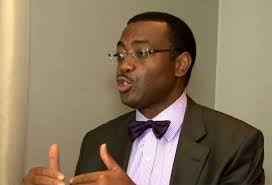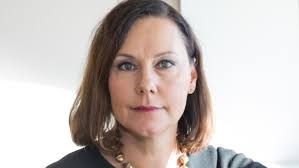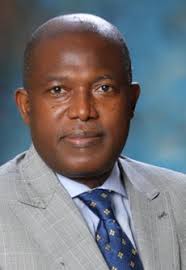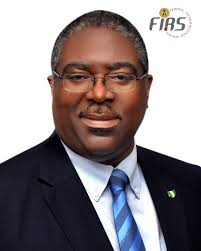The President of the African Development Bank (AfDB), Dr Akinwumi Adesina, has again warned that the introduction of a carbon border tax by the European Union (EU) could push Africa back into exporting raw commodities and undermine its industrialisation gains.
The European Union recently launched the initial phase of a Europe-wide carbon tax on imported goods as part of its climate change reduction measures. Adesina
However, Adesina flawed the fiscal regime, saying its implementation could hurt African countries.
He said: “African companies that are making cement, steel, aluminium, fertilizers and trying to export to Europe are going to be charged a border tax of 80 euros per tonne. That is very expensive, and all that is going to do is that countries in Africa that already suffer from tariff escalation when they add value to what they produce now you are forcing them down the value chain.”
Adesina, who expressed his concerns on the proposed carbon tax during a high-level panel session at the Doha Forum last Sunday on the theme ‘Decoding the Debt Dilemma—Unveiling Multilateral Solutions’, projected that “Africa is going to lose $25 billion annually. Africa deserves a carve-out on that [taxation] because we are financing Africa’s transition.
“You cannot industrialise just by renewables; you need a balanced energy mix that allows you to use your natural gas to be able to industrialise”, the banker added.
The AfDB chief described natural gas as an essential resource for Africa that should not be restricted in foreign trade, stressing that “just trade is what we need, but give us just trade for a just energy transition. Africa should not be penalised.”
He noted that by introducing general punitive measures that also affect developing countries, developed countries are “shifting the goal post” in the differentiated responsibility within the Paris Agreement by forcing developing countries to attain net-zero carbon emissions much earlier than stipulated.
According to him, multilateral development banks such as the AfDB are critical to providing solutions for Africa’s staggering debt burden and other development challenges even as he highlighted the role of MDBs mobilisers of financing for developing countries.
He expatiated: ‘We need to use the tools we have as we call for the reform of the global financial architecture. The multilateral financial institutions are going to be critical. The tools we have—Special Drawing Rights—need to be stretched.”
Adesina further noted that Africa only received $33 billion out of $650 billion International Monetary Fund Special Drawing Rights (SDRs) and that Africa’s total 2022 external debt, estimated at $1.1 trillion and set to rise to $1.3 trillion by the end of 2023, was troubling.
He pointed out that 25 countries in Africa were in or at high risk of debt distress, adding that a multilateral approach requires that stakeholders understand the structure of the debt itself, what is changing, and how can we respond to it.
The AfDB President said that a proposal developed by the Bank and the Inter-American Development Bank to channel SDRs to multilateral institutions, would enable the banks to leverage funds by a factor of four, stressing that ‘if the African Development Bank got $20 billion, that would automatically become $80 billion. The MDBs are leveraging machines.”
Other speakers were Qatar’s Minister of Finance Ali bin Ahmed Al Kuwari and Børge Brende, President of the World Economic Forum while CNBC Anchor and Correspondent, Dan Murphy, moderated the session.
Commenting on the difficulty of achieving consensus on climate restrictions, including taxation, Brende said it would be a long road to political agreement on a global carbon price. But at the same time, energy access and security are vital.
He said: “Moving to a society which is decarbonised takes time. We have to find bridges between coal as the most extreme form of fossil fuel through natural gas. We have to move at a speed which makes sense, is cost-effective, and there is a price to be paid.
Brende said global debt was huge, noting that ‘we haven’t seen this level of debt since the Napoleonic wars…even the world’s largest economy, the United States, is paying $1 trillion to service its debt. The US will be able to manage, but a lot of countries are in a lot of trouble.”
Minister Al Kuwari said targets set by climate change experts had at times been “too ambitious, too aggressive, and had not properly taken into consideration transition periods. Qatar, on the other hand, has established a reputation as a responsible supplier of energy to the world.
“Qatar believes that natural gas will be the transition fuel and should be adopted. We have invested in increasing our production by 65% and reach a maximum of that production by 2027. ‘It’s very important for climate change goals to be realistic,’ Al Kuwari added.
He disclosed that Qatar had successfully brought down its debt from 72% of GDP in 2020 to below 40% in 2022 through fiscal policy.
The Doha Forum is a global platform for dialogue by policy leaders on the world’s critical challenges to build innovative and action-driven networks.




